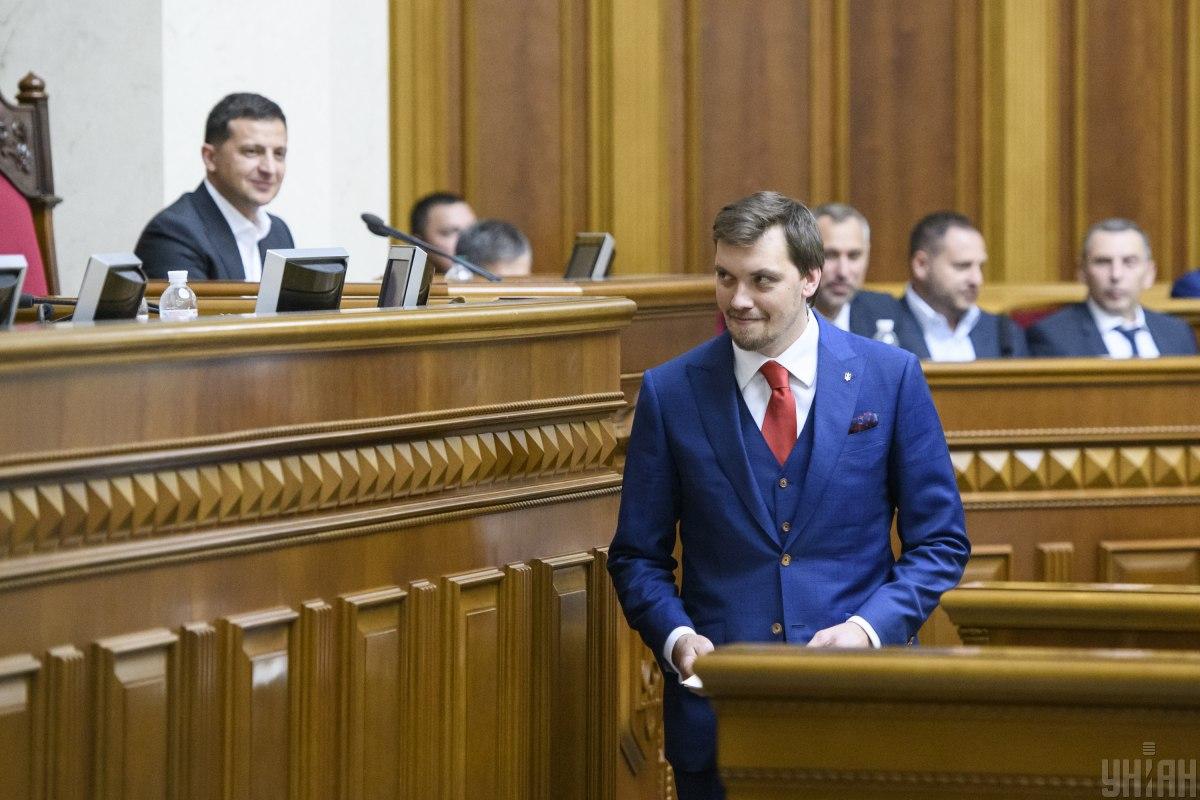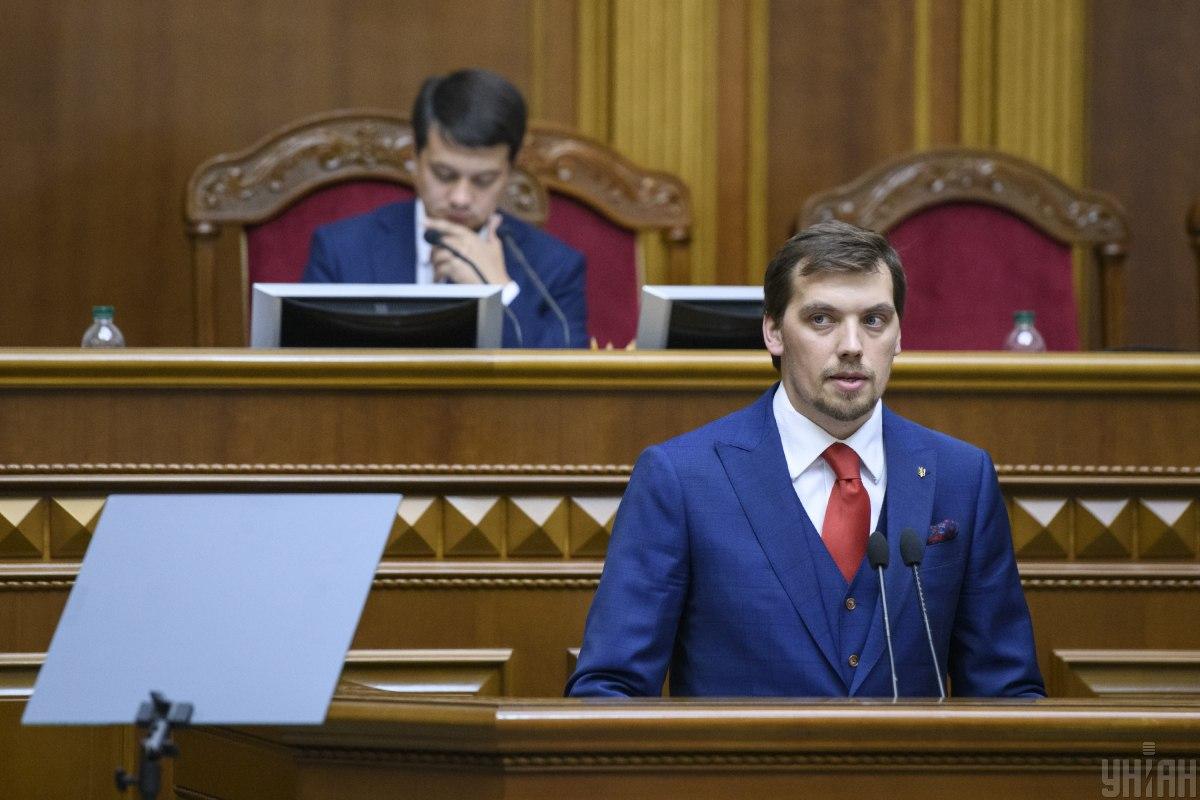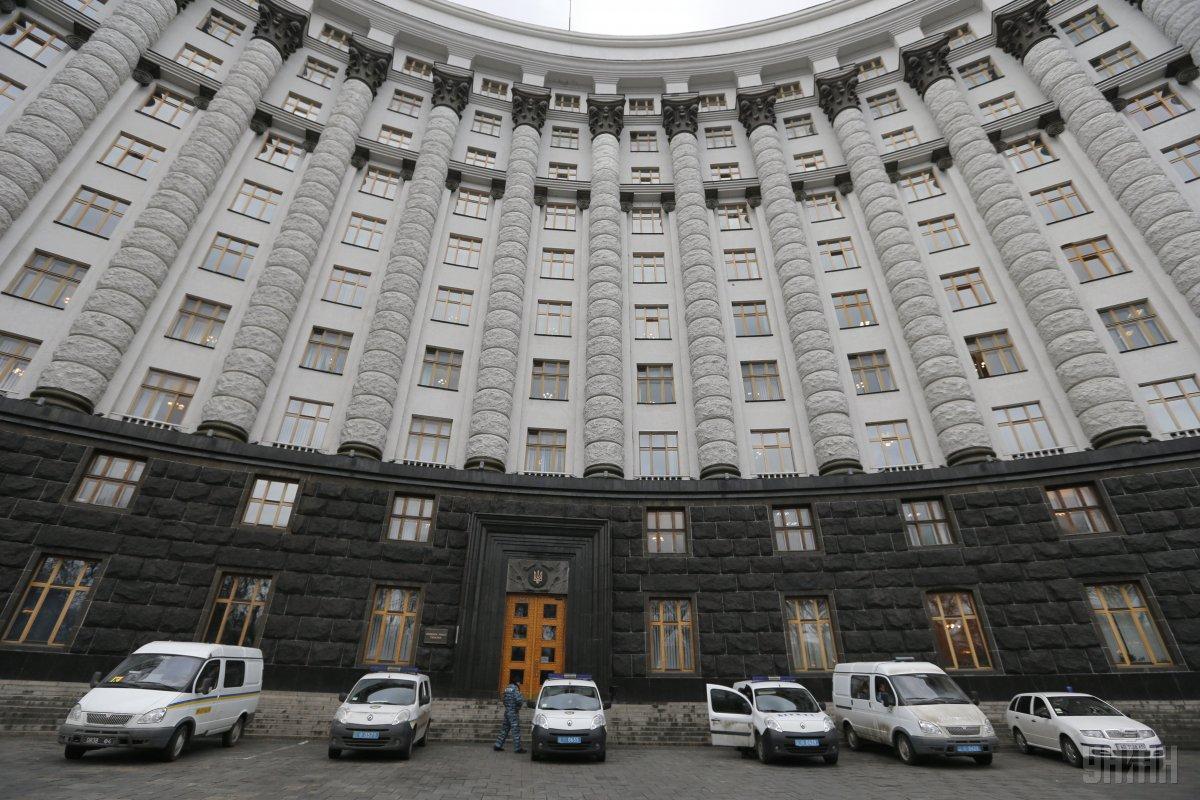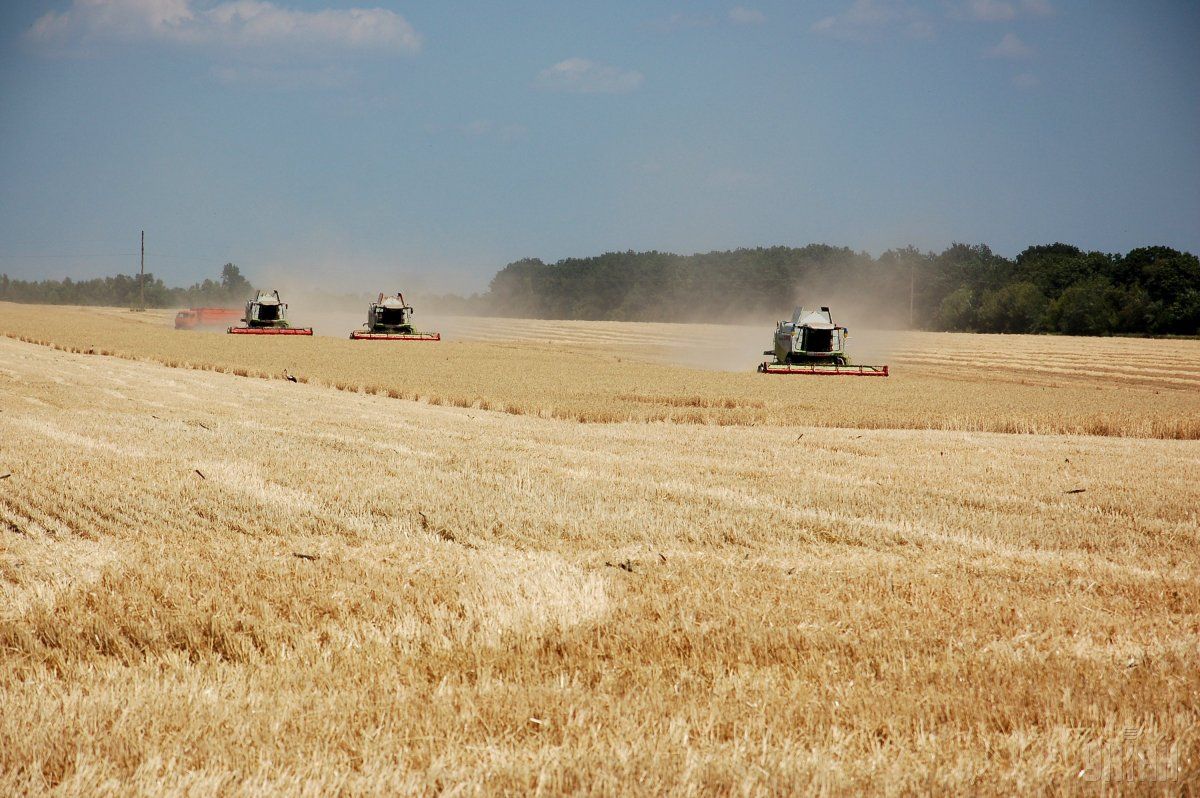
Week's balance: Rada appoints new government, new PM Honcharuk vows higher GDP growth and talks with IMF
The Verkhovna Rada of the ninth convocation at its first meeting formed a new government, while the newly appointed Prime Minister, Oleksiy Honcharuk, called his priority boosting economic development and continued cooperation with the IMF – these are the main economic news of the past week.
The last week of August was marked by a first meeting of the Verkhovna Rada of the ninth convocation. The pro-president Servant of the People faction was recognized as a mono-coalition with the right to form a government. Party leader Dmitry Razumkov became Parliament Speaker.
One of the main goals of the new composition of the Verkhovna Rada, the head of parliament called accelerating economic growth and strengthening the fight against corruption. "Our goal is to grow the economy 5%-7% next year. In addition, this growth should be not only on paper, in statistics, but also consistent with what people feel every day in their lives," he said while addressing the Rada before being appointed. After the election of the speaker and his deputies, the deputies approved the appointment of the head of government and ministers according to the president’s quota, and at the suggestion of the prime minister they appointed a new Cabinet.
New Cabinet's priorities
The Cabinet of Ministers is now headed by Oleksiy Honcharuk, 35, who at the time of his appointment was deputy head of the President's Office. His candidacy was supported by 290 deputies out of 418 registered in the session hall.

According to Honcharuk, the main problems the state is facing include broken infrastructure, terrible state of housing and utility services, smuggling, and war in the east. And their solution will be facilitated by the economic development of the state, which will become his key task in the new post.
"I personally see the solution of the issue, including war, including the protection of our citizens, in economic growth. Because, if the economy is growing, investments come here, their owners begin to protect them. On the one hand, we will have money to arm and strengthen our Army, and, on the other hand, invest in the territories that have been affected," the prime minister said.
To ensure this growth, Honcharuk says, it is necessary to provide a mechanism for cheap lending, ensure independence of the National Bank, and help improve the image of Ukraine worldwide.
"It is very important for us to change the attitude to Ukraine in the world. It's about the image. Our credit rating speaks for itself, all these speculative names aren't offensive, but this is all the result of our joint work over the past decades. This needs to be changed as soon as possible. And the basis for these changes should be cooperation with our international partners and creditors," said the new head of government.
Honcharuk expects that soon the mission of the key creditor, the International Monetary Fund, will come to Ukraine to discuss a new three- or four-year cooperation program. According to him, the visit could take place from Sep 10 to Sep 24.
The prime minister noted that, in the framework of future cooperation with the IMF, the Cabinet of Ministers will not interfere in issues of gas prices for the households, which were one of the main stumbling blocks in the previous government's communication with the Fund.
"When a politician begins to intervene in the price, this leads to inefficiency, corruption, and populism," Honcharuk believes.
At the same time, he specified that the part of the population for which the market price of gas would be unbearable will receive social support from the state.
In addition, the prime minister announced the acceleration of integration into the European energy market, which is scheduled for 2023, and promised in the coming days to solve the issue of the model and timing of the unbundling (separation of functions for gas production and transmission) of Naftogaz.
Among Honcharuk’s other ambitious plans is the intention in the fall of 2019 to fix issues with the administration of taxes, and in the spring of 2020, to carry out a "deep" tax reform, which will enter into force on January 1, 2021. Also, the head of the Cabinet promised by the end of this year to combat smuggling, which "kills competition and prevents businesses from developing normally."
The first steps of the new prime minister will be personnel appointments, because the success of the outlined goals directly depends on how effective and well-coordinated the team work will be.
"I believe that behind the entire industries sit individual characters who keep feeding on our resources and distribute state funds in their favor. Personnel decisions must begin with an assessment of effectiveness. We want to analyze the activities of all bodies and dismiss all ineffective leaders in the coming month," he emphasized.

After appointing Honcharuk as the country's new PM, deputies approved the composition of his Cabinet – 281 legislators supported the candidates submitted for relevant posts.
The number of ministers in the new government was reduced from twenty-five to seventeen, and part of the ministries has been transformed.
Dmytro Kuleba became Deputy Prime Minister for European and Euro-Atlantic integration, and Mykhailo Fedorov became Deputy Prime Minister and Digital Transformation Minister.
Tymofiy Mylovanov has been appointed Minister of Economic Development, Trade and Agriculture. His ministry combines the functions of the Ministry of Economic Development and the Ministry of Agriculture and Food.
Oleksiy Orzhel became head of the Ministry of Energy and Environmental Protection, which replaced the liquidated Ministry of Energy and the Ministry of Ecology, while Vladyslav Kriklii became Minister of Infrastructure.
Aliona Babak was appointed Minister for Development of Communities and Territories, Anna Novosad – Minister of Education and Science, and Zoriana Skaletska (Chernenko) – Minister of Health.
Volodymyr Borodiansky now heads the Ministry of Culture, Youth and Sports, formed through the merger of the Ministry of Culture and the Ministry of Youth, while Yulia Sokolovska is in the lead of the Ministry of Social Policy. Oksana Koliada became Minister for Veterans, Temporarily Occupied Territories and Internally Displaced Persons, while Denys Maliuka – Minister of Justice, and Dmytro Dubilet - Minister of the Cabinet of Ministers.
Vadym Prystayko (Minister of Foreign Affairs) and Andriy Zahorodniuk (Minister of Defense) were appointed under the president's quota
From the previous Cabinet, Finance Minister Oksana Markarova and Minister of the Interior Arsen Avakov remained in place, while the decision to support the latter Honcharuk called "one of the most difficult ones".
By the way, the newly appointed Cabinet has already held its first meeting. No official reports came following the meeting so the agenda remains unknown.
Beheaded agriculture

In general, the expert community responded positively to new appointments in the government. However, a number of decisions ran into a flurry of criticism. One of the reasons for heated discussions among economists was the liquidation of a separate agricultural ministry by reorganizing it into the Ministry of Economic Development, Trade and Agriculture. As a result of this step, the leading branch of the Ukrainian economy, generating about 40% of foreign currency earnings and 17% of GDP, has lost its lobbying body in the new government.
According to many market participants, this may affect the export volumes of Ukrainian agricultural products. By the way, in 2019 Ukraine has every chance to set another record for grain supplies to foreign markets – and at the same time lose the agricultural development strategy.
"The functions of the agrarian ministry are partially being transferred to the Ministry of Economic Development, where agricultural issues are far from top agenda, even taking into account the name of the new ministry. Ukraine will be left without a strategy for the development of the agricultural sector, and state-owned agricultural enterprises will fall under control of the Ministry of Economy ... In the new ministry, the word 'agricultural policy' disappeared, and there was no place for the word 'agribusiness.' Only for 'agriculture'," Director for Development of the Ukrainian Fruit and Vegetable Association, Kateryna Zvereva, said, commenting on the Cabinet decision.
International experience doesn't add optimism, either. In all countries with a highly developed agricultural sector, there are specialized ministries.
At the same time, some economists claim that everything will be fine with the Ukrainian agro-industrial complex, and the liquidation of the agrarian ministry is no cause for panic.
"We need those changes to get out of the comfort zone, in which we have been staying for the past twenty years, and look at the situation in the industry from a slightly different angle. I think that the merger of the two ministries will allow doing this," Dmytro Kroshka, executive director of the Ukrainian Association of Agricultural Export, told UNIAN. Anyway, for the further successful development of the national agricultural sector, the government should take into account and continue the previous developments of the Ministry of Agrarian Product and Food. The effectiveness of the newly created Ministry of Economic Development, Trade and Agriculture will directly depend on how the new body will distribute functional responsibilities and tasks between its structural departments.
Next week, the Verkhovna Rada will continue its plenary work, while the Cabinet of Ministers will hold a meeting at which the strategic course and principles of the new government will become clearer. On Aug 31-Sep 1, during a two-day visit to Warsaw, President of Ukraine Volodymyr Zelensky is holding important talks with the leaders of Poland, the U.S., Belgium, Lithuania, and Georgia.
Nadiia Burbela

